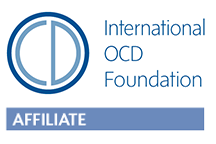Who We Are
Founded in 2010, the OCD Mid-Atlantic is a non-profit affiliate of the International OCD Foundation (IOCDF). We are a locally based group made up of people with Obsessive Compulsive Disorder (OCD) and related disorders, as well as their families, friends, professionals and others. The affiliate services Maryland, Washington, D.C., and Northern and Central Virginia.
Our Mission & Goals
Educate
Improve Access
Advocate & Lobby
Board Members
Elspeth Bell, Ph.D.
Elspeth Bell, Ph.D.
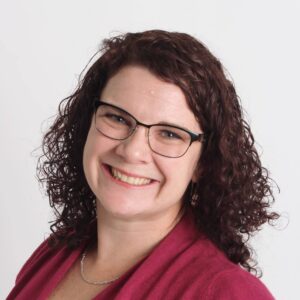 I recently attended my 25th college reunion and visited the classroom where I took my first psychology class in freshman year. I recall sitting in the classroom and feeling drawn into every aspect of the lectures. At that point the English major went by the wayside and I committed to a future with Psychology.
I recently attended my 25th college reunion and visited the classroom where I took my first psychology class in freshman year. I recall sitting in the classroom and feeling drawn into every aspect of the lectures. At that point the English major went by the wayside and I committed to a future with Psychology.
In graduate school, I began my career-long relationship with OCD. From my first clinical experiences, I saw the impact of OCD on people struggling to navigate through their lives. With enthusiastic, passionate mentors and supervisors, I was encouraged to bring my own energy to clinical work and research. I enjoyed collaborating with clients to develop exposures and work through their hierarchies. Being a part of their accomplishments in conquering their OCD, I saw the power of effective therapies and the importance of camaraderie.
Through colleagues from graduate school, I connected with the Behavior Therapy Center of Greater Washington. As a newly minted Psychology Associate, I had the privilege of being introduced to some incredible clinicians involved with the OCD community. I attended my first IOCDF conference in Minneapolis back in 2009 and it felt like coming home. The IOCDF community amazed me and I have been fortunate to have been welcomed into it. Again, I saw how camaraderie can buoy someone through the intensity of OCD and help them through difficult times.
When OCD Mid-Atlantic was seeking new board members in 2014, I saw it as an opportunity to become further engaged with the local OCD community in the DC-Maryland-Virginia area. Over the past 8 years, I’ve had the honor of serving as Vice President and currently as President of the IOCDF Affiliate. One of most rewarding aspects of my involvement with OCD Mid-Atlantic is my facilitating connections between members of our community. I cannot overstate the impact of seeing people finding others who are in similar circumstances, learning there are resources available to them, and realizing they are not alone in their journeys. OCD Mid-Atlantic is proud to be a piece of this process, as am I.
Brad Hufford, LCSW-C
Brad Hufford, LCSW-C
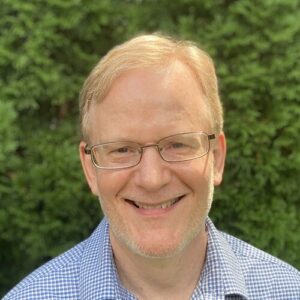 I was diagnosed with OCD when I was fourteen. In my later teenage years, my dream was to help OCD sufferers as my therapist had helped me. At first, my plan was to take Pre-Med classes and then go to Medical School to become a psychiatrist. I earned good marks in the Pre-Med science classes, but I decided, after talking to several psychologists and psychiatrists, that I did not enjoy science enough to take that path. Instead, I earned my BA in Psychology. Next, I earned a Masters Degree in Social Work (MSW) to be able to work with OCD sufferers as a therapist. After earning this degree, my big break came. I applied for employment at the Behavior Therapy Center (BTC) of Greater Washington, and I got the job. I have loved working at BTC, the premiere OCD treatment clinic in the mid-Atlantic region, for the past twenty-seven years because I have treated many OCD sufferers, people that I was extra motivated to help. I have learned an enormous amount from the director and fellow Board member Dr. Charles Mansueto and the rest of the wonderful and smart staff there.
I was diagnosed with OCD when I was fourteen. In my later teenage years, my dream was to help OCD sufferers as my therapist had helped me. At first, my plan was to take Pre-Med classes and then go to Medical School to become a psychiatrist. I earned good marks in the Pre-Med science classes, but I decided, after talking to several psychologists and psychiatrists, that I did not enjoy science enough to take that path. Instead, I earned my BA in Psychology. Next, I earned a Masters Degree in Social Work (MSW) to be able to work with OCD sufferers as a therapist. After earning this degree, my big break came. I applied for employment at the Behavior Therapy Center (BTC) of Greater Washington, and I got the job. I have loved working at BTC, the premiere OCD treatment clinic in the mid-Atlantic region, for the past twenty-seven years because I have treated many OCD sufferers, people that I was extra motivated to help. I have learned an enormous amount from the director and fellow Board member Dr. Charles Mansueto and the rest of the wonderful and smart staff there.
I am still treating individuals with OCD. I’m still fascinated with and learning more about OCD from the sufferers that I treat. Nothing feels better than to help someone overcome an enormous burden in their life. At BTC, I have learned about research and dissemination of evidence-based practices. The gold standard treatment for OCD, exposure and response prevention (ERP) therapy, has decades of research supporting its implementation, which is why we have used this treatment approach at BTC. That is the good news for sufferers; efficacious treatment is available, and it’s only getting better.
Along the way, I wrote a book in 2008 about my experiences as a sufferer who also happened to be a therapist. Or I’m a therapist who also happens to be a sufferer, either one will do. After hearing that the IOCDF mid-Atlantic affiliate’s mission aligned with my personal and professional missions, when a slot for the Board opened, I jumped. I also wanted to educate the public about OCD and increase awareness of the disorder and its treatment. In 2022, I was a moderator of a panel of two other Board members who have adult children with OCD. Over the years, I have spoken at the IOCDF annual conference several times. With IOCDF’s mid-Atlantic affiliate, I am enthusiastically looking forward to participating in other community outreach activities.
Charley Mansueto, Ph.D.
Charley Mansueto, Ph.D.
 I found my dream major at Rutgers when I took my first Psychology course, and I never have second-guessed my decision. I was impressed with the scientific approach that my professors took and decided to become a professor/researcher, so I went off to Connecticut College to earn a master’s degree in Experimental Psychology. In my last year, I changed my mind and decided that a better career path for me was to directly help people by using what I had learned in my courses. Catholic University’s Personality Research doctoral program offered me the opportunity to remain on the scientific side of clinical psychology with the research courses I would take, but there was room in the program for me to take any of the clinical courses that I wanted. What a deal!
I found my dream major at Rutgers when I took my first Psychology course, and I never have second-guessed my decision. I was impressed with the scientific approach that my professors took and decided to become a professor/researcher, so I went off to Connecticut College to earn a master’s degree in Experimental Psychology. In my last year, I changed my mind and decided that a better career path for me was to directly help people by using what I had learned in my courses. Catholic University’s Personality Research doctoral program offered me the opportunity to remain on the scientific side of clinical psychology with the research courses I would take, but there was room in the program for me to take any of the clinical courses that I wanted. What a deal!
After graduation and a freshly minted doctorate, I became a professor at Bowie State University where, as chair of the Psychology Department, I created a BS Program in behavioral psychology that prepared students for graduate work. For other students who learned behavioral technology and other practical skills like Report Writing and Statistics, it prepared them for entry-level jobs in mental health. It was satisfying to watch that program take off and it got a lot of attention from inside and outside the university, but it only whetted my appetite for actual clinical work.
An opportunity arose when I became eligible for a sabbatical leave and received a government-funded, Professional Developmental Grant to conduct clinical research while doing therapy at Temple University School of Medicine. That program was known to be the place to go for training in behavior therapy. Plus, I would be a post-doctoral fellow at a place that had giants in the field (e.g., Edna Foa, PhD, Gail Steketee, PhD, both OCD pioneers, and Joseph Wolpe, MD, the “Father of Behavior Therapy”. After my post-doc year, I was invited to stay on as a faculty member and create and head a new program—Behavior Therapy for Children and Families. Bowie State granted me another year of leave, and then four more years of a half-time tenured professorship that allowed me to run the program at Temple but to continue to teach courses in Maryland. (Thanks, Bowie State!)
Then Dr. Wolpe retired, the Temple program closed, and I was able to return to teaching in Maryland, but now my passion was clinical work. I began a solo clinical practice that grew quickly, and after a few years it had become the Behavior Therapy Center of Greater Washington (BTC), a clinic for therapy, professional training, community resources and clinical work focusing on obsessive compulsive and related disorders that became known locally and nationwide. Our work at BTC led to deep professional involvement with national organizations (e.g., the International OCD Foundation [IOCDF], TLC—the Foundation for Body Focused Repetitive Behaviors [TLC], the Anxiety and Depression Association of America [ASDAA], the Tourette Association of America [TSA); collaboration with area hospitals and institutions (e.g., National Institute of Mental Health, Johns Hopkins Hospital, Children’s National Medical Center, Georgetown University Hospital, Sheppard Pratt); and provision of a wide range of clinical services for over 15,000 clients during our almost forty years of existence.
Carter Waddell, Shannon Shy and I created OCD MidAtlantic, an affiliate of IOCDF and I became its second chair. Our vision was and still is, to inform the public about OCD, to increase the availability of competent and affordable treatment, and to link professionals and persons affected by OCD into a growing bank of resources to serve the entire OCD community in Maryland, DC and Virginia. It is a mission that I have not lost my enthusiasm for. In fact, as I look back on my career, I realize how lucky I have been to venture into the world of OCD— the exciting OCD field itself, the dedicated community of researchers and clinicians, , the challenge of improving clinical services, the excitement of working toward further breakthroughs, and most of all, the human connection with the thousands of people with OCD whom I have come to know through my work.
Gloria Mathis, Ph.D.
Gloria Mathis, Ph.D.
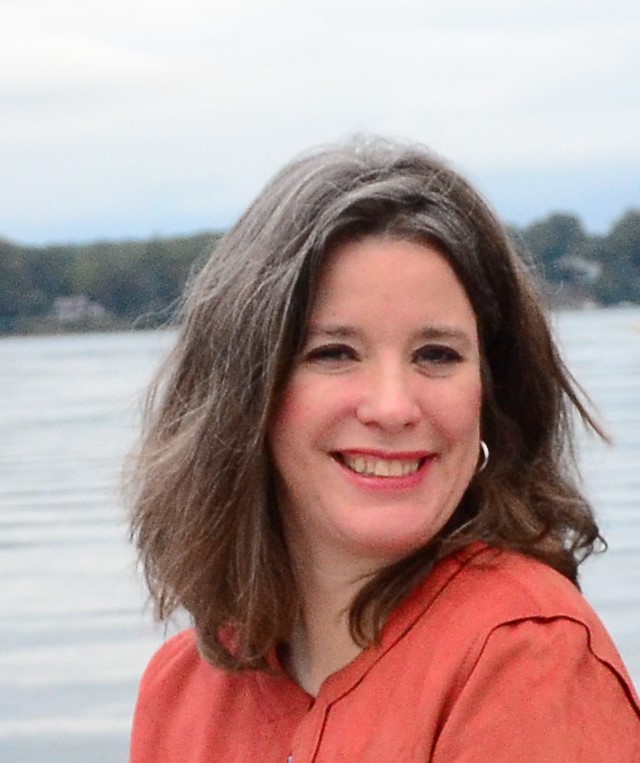 I decided to go to graduate school in psychology because I enjoyed helping people and was often my friends' confidant, probably not that much different from a lot of now-therapists. I was interested in anxiety and so attended a school that had a strong anxiety program. During this time, I learned a lot about treating anxiety and OCD with evidence-based treatments. My program also talked a lot about research and the dissemination of evidence-based practices to areas and therapists where they were less well-known.
I decided to go to graduate school in psychology because I enjoyed helping people and was often my friends' confidant, probably not that much different from a lot of now-therapists. I was interested in anxiety and so attended a school that had a strong anxiety program. During this time, I learned a lot about treating anxiety and OCD with evidence-based treatments. My program also talked a lot about research and the dissemination of evidence-based practices to areas and therapists where they were less well-known.
After receiving my doctorate, I had the opportunity to work as a post-doctoral fellow with Alec Pollard at St. Louis Behavioral Medicine Institute. This experience immersed me in the world of OCD and the experiences of those with OCD and related disorders, while providing me with invaluable training in the best treatments for OCD. This allowed me to transition to a career as an OCD specialist. Soon after I began working at Behavior Therapy Center, there was a call for new affiliate board members. I joined the Board as a way to disseminate information and evidence-based treatment (which I learned to value in graduate school), experience professional growth, and connect with the local OCD community. I'm so glad I did because it has been a very rewarding experience and I believe strongly in the mission of the IOCDF to increase access to effective care, reduce stigma, and support the OCD community.
My involvement with the Mid-Atlantic affiliate board has allowed me to help disseminate evidence-based practices to community OCD therapists, provide information to people in the Mid-Atlantic region who are just beginning to learn about OCD, and fund-raise for further efforts in these areas. I am proud and honored to represent the Mid-Atlantic OCD community and look forward to continuing to do so in the years to come.
Meghan Meros, MS, LCPC
Meghan Meros, MS, LCPC
 As a licensed clinical professional counselor (LCPC) and a person with lived experience of OCD, I am passionate about supporting individuals who find themselves struggling with symptoms of OCD and related disorders. Knowing from personal experience that it can take a long time to receive an accurate diagnosis and effective treatment, I am also committed to raising awareness of OCD and increasing access to care.
As a licensed clinical professional counselor (LCPC) and a person with lived experience of OCD, I am passionate about supporting individuals who find themselves struggling with symptoms of OCD and related disorders. Knowing from personal experience that it can take a long time to receive an accurate diagnosis and effective treatment, I am also committed to raising awareness of OCD and increasing access to care.
In my private practice, Tend Counseling, I draw on my post-graduate training in ERP and I-CBT to treat teens and young adults from diverse backgrounds. I also enjoy participating in the IOCDF’s annual conferences, where I have facilitated discussion groups on the intersection of OCD and creativity.
My approach to counseling is informed by previous experience working on a mobile crisis team and leading Spanish immersion trips in South America. Prior to completing my master’s degree in counseling, I completed a master’s degree in Spanish and Latin American studies with a goal of working in the field of international development. Although my professional aspirations changed over time, I am grateful for the international perspective, cultural competency, and Spanish language skills that my early studies and work experiences offered me.
Outside of work, I enjoy visiting local coffee shops with my husband, going to ballet classes, and singing in a community choir.
Laura Mlynarski, PhD
Laura Mlynarski, PhD
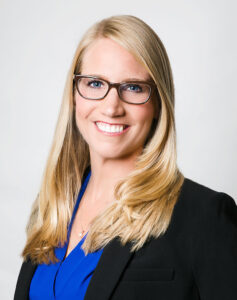 I’ve always known I wanted to be a clinical psychologist. I remember being asked at high school graduation what I wanted to study at college, and I confidently declared psychology and Spanish. I graduated with that double major and went on to train as a social worker in New York City where I worked in a bilingual capacity for many years. I because especially interested in OCD during my doctoral training in clinical psychology when I realized that I had missed some subtle presentations of OCD early in my career.
I’ve always known I wanted to be a clinical psychologist. I remember being asked at high school graduation what I wanted to study at college, and I confidently declared psychology and Spanish. I graduated with that double major and went on to train as a social worker in New York City where I worked in a bilingual capacity for many years. I because especially interested in OCD during my doctoral training in clinical psychology when I realized that I had missed some subtle presentations of OCD early in my career.
I received formal OCD training at the Anxiety Disorder Center at the Institute of Living during my predoctoral internship, completed my post doc at the Capital Institute for Cognitive Therapy focusing on OCD and later participated in IOCDF’s BTTI. I am especially motivated about treating OCD and advancing proper training and awareness for other providers so that fewer individual’s struggles go misdiagnosed and mistreated, exacerbating suffering.
While I am passionate about the work I do in my private practice, I often feel discouraged by the number of individuals who call looking for help, knowing that my waitlist will preclude me from taking them on anytime soon. I joined the IOCDF’s Mid Atlantic Board with the goal to engage in broader advocacy to increase access to evidence-based treatment, reduce stigma and support the OCD community.
Diane Prost, M.Ed., NCC
Diane Probst, LPC

My interest in psychology began around age 16, however, the lure of the computer industry led me to major in Information Systems and Marketing in college, with a minor in Spanish. I spent the next 17 years working for American Airlines’ computer division Sabre, traveling the world, teaching travel agents to use their computer systems.
But then 9/11 happened. I had been in New York exactly two weeks prior for work and realized that could have been me on one of those planes. I started questioning where and what I wanted to be in life. So, I pursued a Masters in Community Counseling at night, while substitute teaching during the day. My first job out of graduate school was with a private practice in St. Louis, which had partnerships with schools to provide on-site counseling. Being bilingual in Spanish and English, I worked in a mainly Hispanic school as a K-8 counselor while also seeing clients in private practice.
Then my 15-year-old son was diagnosed with OCD. I dove headfirst as both a mother and a therapist to learn everything I could about OCD, IOP, ERP, and ACT, attending the annual IOCDF conferences with my son. I discovered that OCD is a highly treatable disorder and I made it my mission to specialize in it clinically and create awareness of it personally and professionally. This led me to becoming President of the St. Louis OCD Support group and starting a teen OCD Support group, while opening my own private practice. My son and I co-presented at several IOCDF conferences which was like a dream come true! I was very involved with the OCD therapist network in St. Louis and worked with industry leaders such as Dr. Alec Pollard at St. Louis Behavioral Medicine Institute. I loved being involved with advocating for OCD and participated in the annual St. Louis mini-conferences during OCD awareness week.
In 2021, I began pursuing another dream: pursuing a doctorate in Clinical Psychology. Meanwhile, my three adult children all moved up east, two settling in NYC and one in Washington, DC. In 2022, my husband and I decided we wanted to be closer to our family and moved to Fairfax, VA. My clients followed me, and I now practice via telehealth. I finished my PsyD coursework and am currently working on my dissertation, which involves other treatment options for Intolerance of Uncertainty in individuals with OCD.
Now happily settled In Northern Virginia, I want to continue my work in advocating for OCD, creating awareness of the treatment options, and giving hope to people and families living with this disorder. As both a mother of someone with OCD and a therapist, I am very excited to be joining the Board of the IOCDF Mid-Atlantic affiliate and look forward to becoming more involved with this community in the DMV area.
Gail Quick, Ph.D.
Gail Quick, Ph.D.
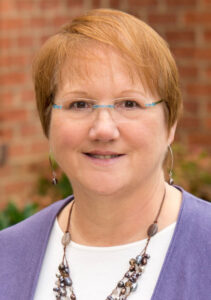 I come from a long line of anxious individuals. Going back many generations, almost everyone in my mother’s family was a “worrier” and as a child I was described as “painfully shy.” So, maybe it’s not surprising that when I decided to go to graduate school to study clinical psychology, I found myself drawn to anxiety disorders.
I come from a long line of anxious individuals. Going back many generations, almost everyone in my mother’s family was a “worrier” and as a child I was described as “painfully shy.” So, maybe it’s not surprising that when I decided to go to graduate school to study clinical psychology, I found myself drawn to anxiety disorders.
I started graduate school in 1978, and at that time no one was talking about OCD. Looking back, I’m not sure when I became aware that it was even a thing. I do know that by the late 1990’s when I was part of a large private practice group in Richmond, Virginia, we had started getting referrals on a regular basis for individuals looking for help for Obsessive Compulsive Disorder.
It didn’t take long to realize that the general cognitive behavior therapy approach I had learned in graduate school wasn’t working. None of my colleagues seemed to know any more than I did, so I made it my mission to start learning everything I could about OCD. I joined a local study group and started attending every professional training I could find.
In 2010 I started a free Richmond-area support group for adults with OCD, a group that continues to meet monthly, and in 2018 I joined the OCD MidAtlantic Board of Directors to help promote OCD awareness and facilitate a greater sense of community for individuals with OCD.
Jeannette Reid, Ph.D.
Jeannette Reid, Ph.D.
 My fascination with human behavior and mental health – and my dedication to supporting others through cognitive-behavioral means – started very early. In my pre-teen years, I began volunteering my summers at a local school, working as an individual aide for younger children with neurodevelopmental disorders. After the school day ended, I would go home to pour over a library copy of the DSM-IV and create treatment goals and a behavioral plan for my current charge. (Really.)
My fascination with human behavior and mental health – and my dedication to supporting others through cognitive-behavioral means – started very early. In my pre-teen years, I began volunteering my summers at a local school, working as an individual aide for younger children with neurodevelopmental disorders. After the school day ended, I would go home to pour over a library copy of the DSM-IV and create treatment goals and a behavioral plan for my current charge. (Really.)
A decade later, I was scouring PsycINFO and PubMed articles, trying to determine where my area of focus would be for a Master’s program and (presumably) beyond. When I delved into the research on OCD, I knew I’d found my area: I was intellectually stimulated by the endless variation in presentation; I felt pulled by the severity of struggle that could arise; and I was excited by efficacious treatments that promised a future filled with creativity and joy alongside those with whom I’d be working.
Following my M.S. in Experimental Psychology, I had the privilege of learning from Tanya Murphy, M.D. and Eric Storch, Ph.D. (of University of South Florida Department of Pediatrics/Rothman Center for Pediatric Neuropsychiatry) as a Social/Behavioral Researcher and Clinical Evaluator. Under the guidance of Dean McKay, Ph.D. (of Fordham University), I completed my doctoral degree with a dissertation that found support for a novel explanatory model for OCD (“Reflexive Responsivity to Emotion as an Explanatory Model for Obsessive-Compulsive Disorder”). My clinical approach has been further shaped by working with Steven Phillipson, Ph.D. (of the Center for Cognitive-Behavioral Psychotherapy), Charley Mansueto, Ph.D., and Brad Hufford, LCSW-C (both of Behavioral Therapy Center of Greater Washington).
Over the past 17 years (2007 to present), I have had the privilege of publishing 13 articles on OCD; giving 17 conference presentations and/or invited lectures on OCD; and working with and learning from approximately 400 individuals with OCD. I remain as fascinated by and passionate about the condition – and those it afflicts – as I did 20 years ago. I am incredibly honored and humbled to be joining the OCD Mid-Atlantic board, and look forward to connecting with friends both old and new in advocacy and outreach.
Magda Rodriguez, Psy.D.
Magda Rodriguez, Psy.D.
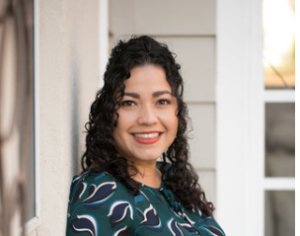 As a young girl, I remember being so excited to talk about my day with one of my favorite family members. I ran into the living room, put down my bag, and began to share about what had occurred at school. My family member, however, would keep saying “uhuh” and didn’t seem to be paying attention. I noticed how she would tap her fingers to her thumbs and simultaneously look at each corner of the wall. I didn’t know what to make of this peculiar behavior, but it felt like she could not budge. I was disappointed when she wasn’t able to come outside to play, of course. Little did I know that she suffered from Obsessive Compulsive Disorder (OCD).
As a young girl, I remember being so excited to talk about my day with one of my favorite family members. I ran into the living room, put down my bag, and began to share about what had occurred at school. My family member, however, would keep saying “uhuh” and didn’t seem to be paying attention. I noticed how she would tap her fingers to her thumbs and simultaneously look at each corner of the wall. I didn’t know what to make of this peculiar behavior, but it felt like she could not budge. I was disappointed when she wasn’t able to come outside to play, of course. Little did I know that she suffered from Obsessive Compulsive Disorder (OCD).
As the years passed, I studied about OCD as part of my graduate training. It was through my education and my clinical training, including an externship at the Behavior Therapy Center, that I uncovered my passion for working with OCD and for being a part of the OCD community. My connection began with a family member who suffered from OCD. My exposure to people’s creativity, intelligence, and kindness through my clinical work with sufferers and their families helped this initial seed grow into a lifelong commitment. I now utilize E/RP, self-compassion, and Dialectical Behavior Therapy (DBT) in my work with clients. I find DBT’s skills, philosophies, and mindfulness most helpful at enhancing my E/RP work with clients. This added resource has improved my ability to treat complexities of OCD, particularly when they can present with other issues.
The desire to give back to the community through providing educational opportunities and increasing awareness led me to volunteer and be a part of OCD Mid-Atlantic, the IOCDF affiliate for Maryland, Virginia, and the District of Columbia. It is such a pleasure to meet and listen to its members from all walks of life and ages. I am thankful and grateful for all the OCD professionals, families, and sufferers that I have had the pleasure to work with since the inception of my career. I hope to see you all at the next IOCDF event!
Deborah Rosenberg, M.D.
Deborah Rosenberg, M.D.
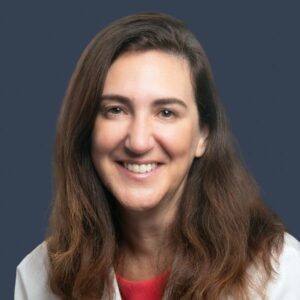 I never really thought that I would have a child who struggled as profoundly as my son Alex did two years ago. His symptoms started so insidiously that it was hard to know exactly what was happening. He would yell and scream while he was working and he would get so upset. We figured he was just anxious and took him to a psychotherapist. The yelling worsened and the repetitive behaviors thought. Because some of his tics were so unusual it still seemed like profound anxiety and not OCD per se. I had worked summers at the National Institutes of Mental Health and I understood OCD to be the hand washing, the checking, and the repetitive motions. I was not ready for the things he would say, the jumping, the hopping and the overall bizarre behavior. We were somewhat fortunate in that I was able to get Alex access to care with an excellent psychiatrist who started him on sertraline. An excellent psychologist, well versed in ERP therapy, worked diligently with Alex and his symptoms slowly improved. Once he was able to function again as the happy child we knew him to be, he and I both felt we wished to “give back” to the community.
I never really thought that I would have a child who struggled as profoundly as my son Alex did two years ago. His symptoms started so insidiously that it was hard to know exactly what was happening. He would yell and scream while he was working and he would get so upset. We figured he was just anxious and took him to a psychotherapist. The yelling worsened and the repetitive behaviors thought. Because some of his tics were so unusual it still seemed like profound anxiety and not OCD per se. I had worked summers at the National Institutes of Mental Health and I understood OCD to be the hand washing, the checking, and the repetitive motions. I was not ready for the things he would say, the jumping, the hopping and the overall bizarre behavior. We were somewhat fortunate in that I was able to get Alex access to care with an excellent psychiatrist who started him on sertraline. An excellent psychologist, well versed in ERP therapy, worked diligently with Alex and his symptoms slowly improved. Once he was able to function again as the happy child we knew him to be, he and I both felt we wished to “give back” to the community.
What I think is helpful for people to know about OCD is the following:
1. Recognize that OCD can take many forms and forgive yourself for mistakes you may have made. Accept that we are all trying to do the best with the information we have at the time we have it. If I could go back in time, I would have headed to therapy and medications much quicker. I cannot do that. Things always look clearer retrospectively.
2. If something is not working, try a new strategy and a new approach. There are excellent resources available from the IOCDF.
3. Choosing to have your child on medications for OCD is not an easy decision. However, it is really important to keep an open mind since these medications can be extremely helpful.
4. Be mindful of siblings. They ca be very understanding but make an effort to carve out time to do something with just them so that their needs get met as well.
5. Be a team with your spouse. Someone needs to be the captain but be a team. It is important for everyone to be on the same page with regard to major therapeutic decisions that are happening with respect to OCD treatment and medications.
6. We found it extremely helpful to go in to speak with my son’s classmates and teachers directly. We explained to them what OCD is, why he had these unusual behaviors, and how teachers and peers could help create a supportive classroom environment. I would certainly recommend doing this.
If you have any questions or concerns or would like to speak with me or my son about how we managed his OCD, please feel free to reach out to us through the Mid-Atlantic OCD Foundation.
Carter Waddell
Carter Waddell
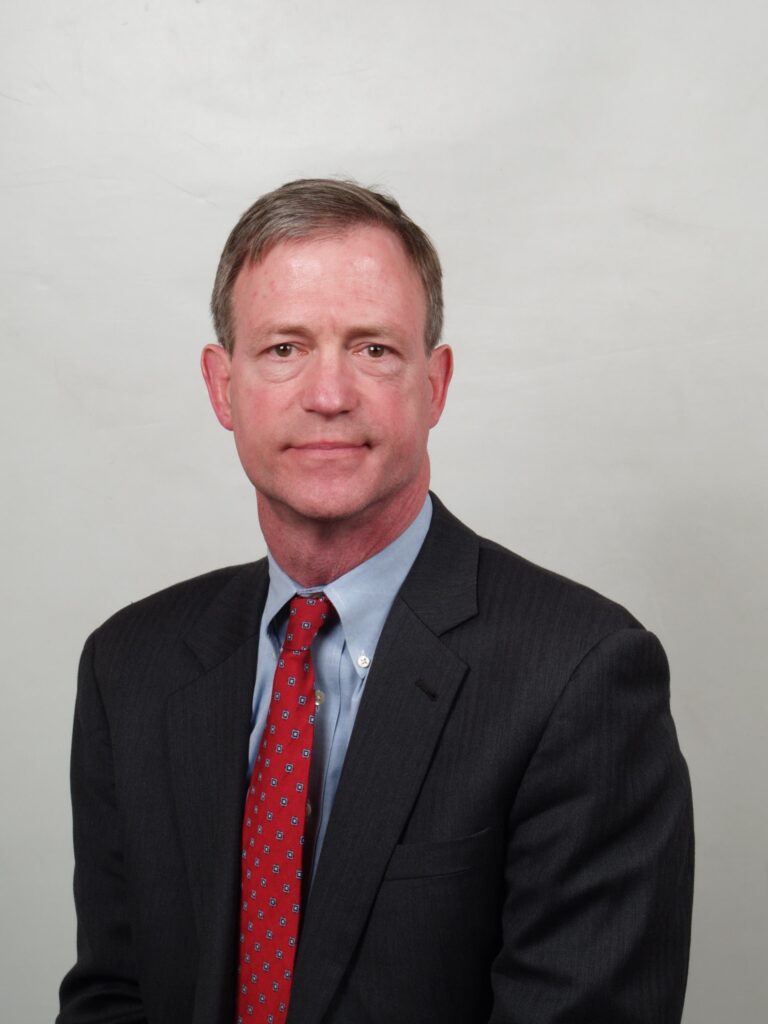 My involvement with the Mid-Atlantic OCD Affiliate began in 2010 when Charley Mansueto, Shannon Shy and I, along with and a few other great OCD professionals, met to create the MidAtlantic Affiliate. I served as its first president and today serve as its treasurer. In 2010, I worked hard and was successful in getting the International OCD Foundation to agree to let our new affiliate cover not just the metro Washington, DC and the state of Maryland, but also south to include the metro Richmond, VA.
My involvement with the Mid-Atlantic OCD Affiliate began in 2010 when Charley Mansueto, Shannon Shy and I, along with and a few other great OCD professionals, met to create the MidAtlantic Affiliate. I served as its first president and today serve as its treasurer. In 2010, I worked hard and was successful in getting the International OCD Foundation to agree to let our new affiliate cover not just the metro Washington, DC and the state of Maryland, but also south to include the metro Richmond, VA.
While my involvement with MidAtlantic affiliate started in 2010, my actual involvement with the OCD community began; however, in 1998 when I attended the IOCDF’s 6th annual conference held in St Louis. I went to that conference as a scared parent of an 11-year boy who was sick and we thought might have OCD. In 1998, the medical community in Richmond, Virginia where we lived at the time was not especially well versed in OCD. My son’s pediatrician was old school and basically told us to simply tell him to stop and he will grow out of it. My son’s school was far worse and was of no help to him in 1998 or in the next few years to come.
At the 1998 St Louis conference I learned so much about OCD and came home terrified and feeling helpless back in Richmond. Once home, I was able to reach out to the IOCDF and some of the wonderful professionals and non-professionals that I met at that year’s conference probably. I believe these individuals saved my life and in turn my son’s. At the 1999 conference the following year held in Arlington, VA, I had a long conversation with Patti Perkins one of the founding members of the IOCDF about problems we (and my son) had been facing in Richmond over the past year ranging from the poor limited support from the medical community, to lack of insurance coverage when we had to drive to Silver Spring, Maryland for help, to the continued dismal support from the county where my son was still trying to go to school.
I asked Patti Perkins what the IOCDF could do to help because as a parent I was at a loss and was looking for resources and better answers. If you recall the old adage, be careful what you ask for, well for me, I was asked to join the board of directors of the IOCDF and I served on the board for the next 16 years. One of the things I am moat proud of about my time serving on the IOCDF’s board was the influence I had early in my tenor on the board to get the IOCDF to widen its conference programs to include more conference sessions for geared families and children.
As a parent, I know how debilitating OCD has been in my son’s life and how much it has impacted not just him but our whole family. As a non-professional, I remain very passionate about helping parents and their children, find help and positive encouragement in their road ahead.
Madeline White
Madeline White
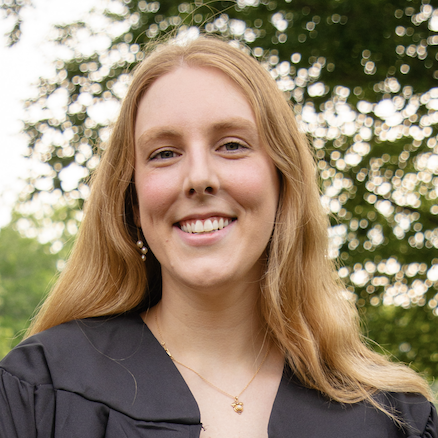 After receiving intensive treatment for my own OCD in 2019, I was introduced to the International OCD Foundation and its exceptional community of support and advocacy. I quickly realized how unique the IOCDF is in its goal of fostering collaboration between people with OCD, researchers, and clinicians. I have presented on several panels at OCD Conferences and I especially enjoy contributing to the IOCDF Young Adult programming. The IOCDF mission aligns with my own personal passions, and I am grateful for the opportunity to contribute to the cause locally through OCD Mid-Atlantic.
After receiving intensive treatment for my own OCD in 2019, I was introduced to the International OCD Foundation and its exceptional community of support and advocacy. I quickly realized how unique the IOCDF is in its goal of fostering collaboration between people with OCD, researchers, and clinicians. I have presented on several panels at OCD Conferences and I especially enjoy contributing to the IOCDF Young Adult programming. The IOCDF mission aligns with my own personal passions, and I am grateful for the opportunity to contribute to the cause locally through OCD Mid-Atlantic.
I grew up and currently live in Richmond, VA and recently graduated with a bachelor's degree in psychology from the College of William & Mary. In addition to my work with the lOCDF, I am involved in disability advocacy and I also have a passion for intimate partner violence awareness and survivor support services. I plan to attend graduate school in order to pursue a career in clinical or counseling psychology.
I am so honored to join OCD Mid-Atlantic as a Board Member and I look forward to continuing to spread awareness for OCD in this new role.

